I grew up in Paris. Here are the 12 biggest mistakes I see tourists make when they visit.
Kyra Alessandrini

- I grew up in Paris and often see tourists miss out on my favorite parts of the city.
- The famous landmarks are worth visiting, but so are the French capital's quieter neighborhoods.
Check the major tourist spots off your bucket list, but venture to Paris' quieter neighborhoods too.
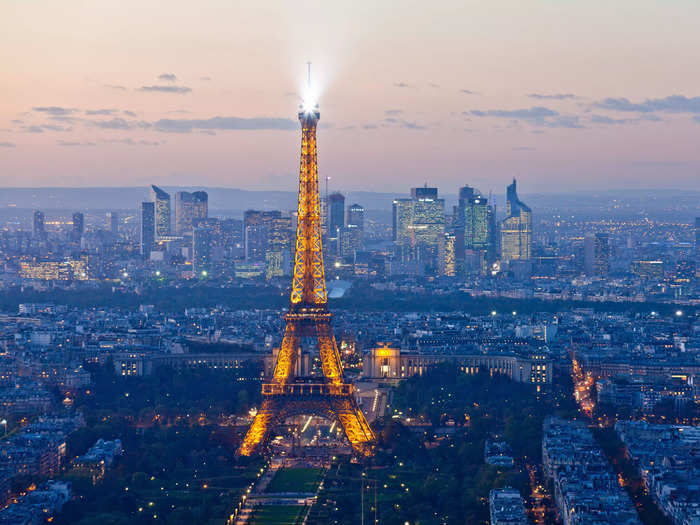
Paris is one of the most popular tourist destinations in the world. Many people dream of snapping photos of the Eiffel Tower, wandering through the Louvre, and strolling down the Champs Elysées.
These historic sites and cultural attractions are prerequisites on most first-timers' itineraries for good reason. But if you're seeking an authentic glimpse of everyday Parisian life, I urge you to explore the city beyond its most famous landmarks.
Walk along the Canal Saint-Martin and check out the surrounding area's art stores, trendy restaurants, and local shops. The quaint streets are quiet and peaceful during the day. At night, they become more lively as locals grab drinks and mingle.
Don't expect Parisian cafés to be like your local coffee shop — they're about more than getting a caffeine fix.
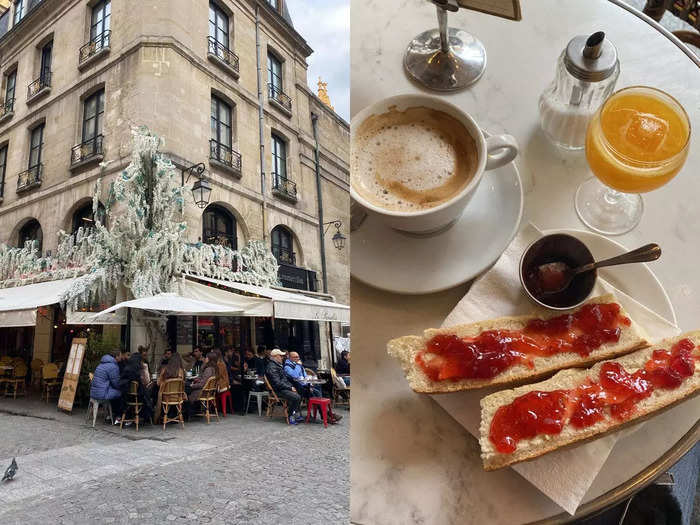
Cafés are an essential aspect of Parisian culture, and there are few better places to romanticize your life. So when you're in the French capital, sit down at one of the outdoor terraces, sip on an espresso, and people-watch for as long as you'd like.
In the morning, most cafés serve breakfast, which often consists of a sliced baguette, warm tea or coffee, and juice. At night, some turn into bars.
Don't expect Parisian cafés to be the same as your coffee shop at home. Here, you'll rarely find to-go cups, non-dairy milk, or specialty drinks, like lattes or iced coffees.
If you order a coffee in Paris, expect your waiter to hand you an espresso. For those who don't drink black coffee, request milk in your coffee by asking for a "café crème" or a cappuccino.
Tourists can still get their familiar to-go cups and lattes at coffee chains, which have larger menus catered to international travelers.
A trip to Paris isn't complete without stops at local boulangeries and pâtisseries.
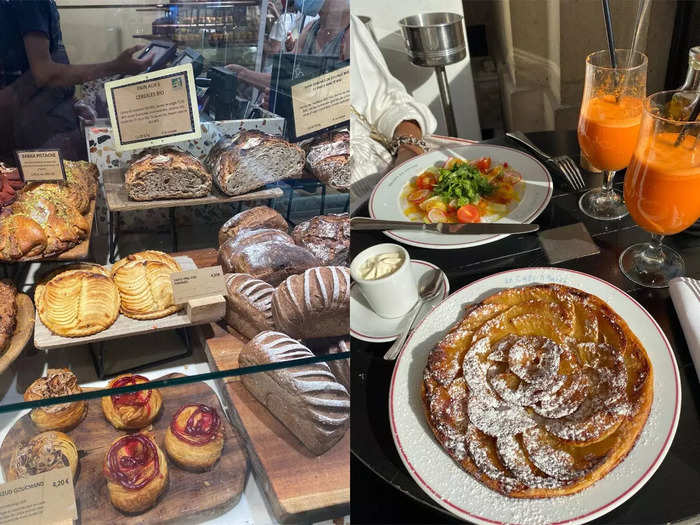
When you're in Paris, you'll pass countless French bakeries, known as boulangeries, and local pastry shops, called pâtisseries.
Do yourself a favor and stop into both.
Not only will you be able to taste authentic French bread (ask for a "tradition," which is a hand-formed baguette prepared with a few simple ingredients), but also the pastries will make you want to return each day of your trip.
Delicacies like strawberry tarts, mille-feuilles cakes, and croissants, are ideal treats at any hour.
Bakeries are also a go-to spot for holiday treats. They sell Mother's Day cakes and Easter chocolates. If you happen to be in Paris for Epiphany in January, try a "galette de rois," which is a traditional round cake.
Go to the famous museums, but remember that the city has smaller galleries and cultural spaces, too.
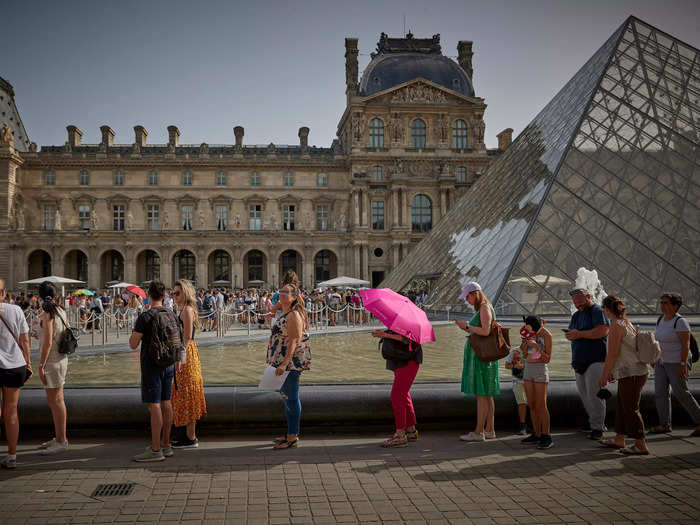
The Louvre, the Musée d'Orsay, the Musée de l'Orangerie, and the city's other world-famous museums are spectacular.
However, every single neighborhood in Paris is seeping with culture, and there are so many other galleries and cultural spaces worth adding to your itinerary.
The historic Marais neighborhood, located in the third and fourth arrondissements, is home to some of my favorite art galleries. I go to Galerie Perrotin for contemporary works and Polka Galerie for photography exhibits.
To immerse yourself in the history of French fashion, head west to the Galerie Dior and the Musée Yves Saint Laurent.
Art is all over the streets, so keep your head up as you wander through different neighborhoods.
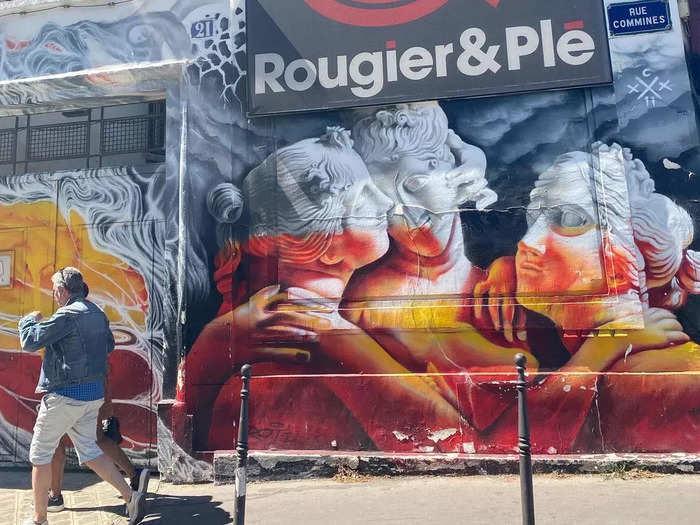
From the giant murals around the Centre Pompidou to the graffiti covering buildings in Montmartre, street art is all over the city.
You never know where you'll stumble upon an amazing piece of art, so make sure to keep your head up as you walk around the different neighborhoods.
Some tourists only stick to French foods they know, but there are so many delicious dishes to try.
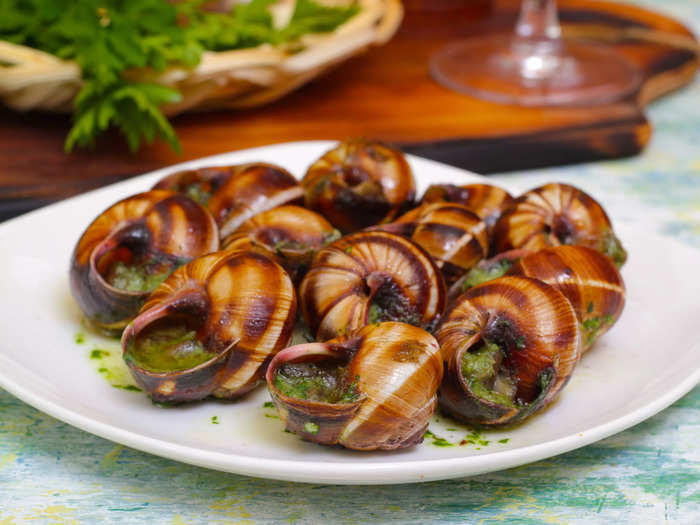
Crêpes, onion soup, and escargots are some of the best-known French dishes around the world, and they're the ones I often see visitors order in Paris.
Those meals are delicious, but they aren't all that French cuisine has to offer. Some of my favorite dishes are beef tartare, pâté de campagne, and roasted duck.
Get out of your comfort zone and try new foods at a traditional bistro or brasserie, where the menu is written on a chalkboard. It's a guaranteed way to experience true French cuisine.
The weather is gray and rainy for most of the year, so make sure to carry around an umbrella.
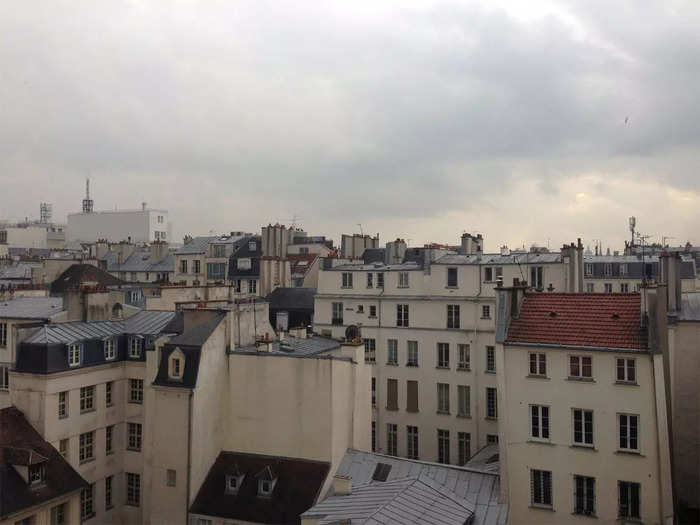
Many movies and TV shows portray Paris as a city that's sunny and warm all year. Unfortunately, that's far from reality.
The weather in the fall, winter, and spring can be overcast and humid, and I've seen a lot of tourists pack the wrong attire or scramble to find rain gear during their trip.
Don't let the weather deter you though, just carry a small umbrella with you if you're planning on walking a lot.
To explore Paris in the sunshine, your best bet is to visit in the summer.
The Métro can be intimidating for first-timers, but it's a wonderful way to get around the city.
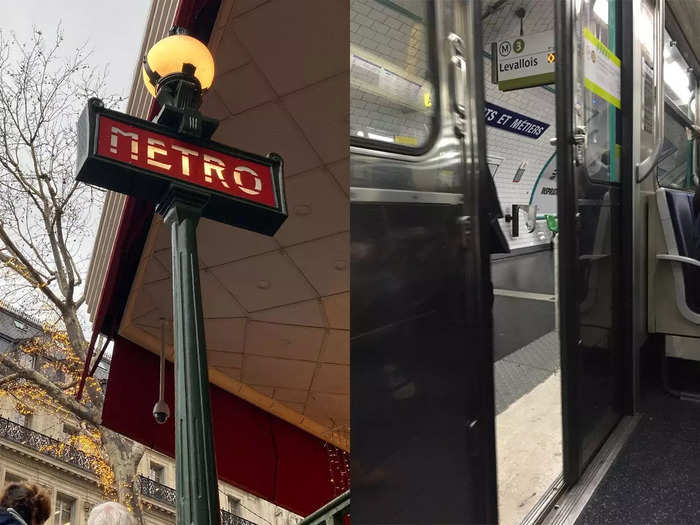
Taking public transportation in an unfamiliar city can be scary and confusing. But once you start using the Paris Métro, you'll realize how efficient and reliable it is. It can get you almost anywhere in the city in less than an hour, regardless of your location.
I also recommend downloading the Bonjour RATP app, which lets users search for the most optimal route to their destination.
When you take the Métro, remember that you're in a big city. Avoid traveling during rush hour and keep a close eye on your belongings.
If you're in Paris during an important soccer match, embrace the locals' excitement.
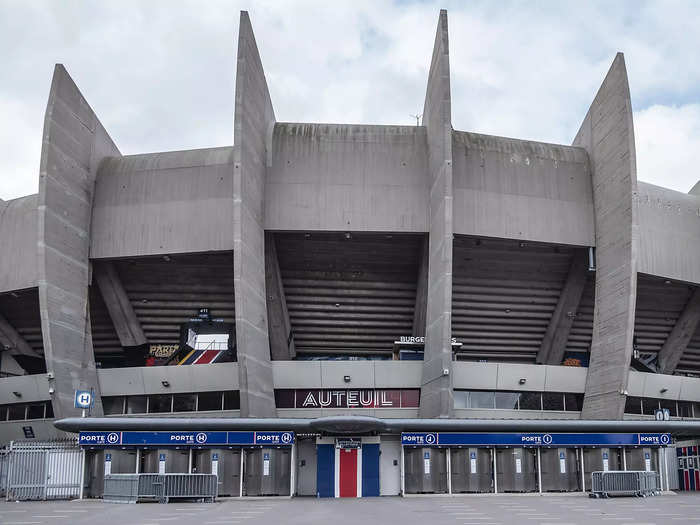
Soccer, referred to as "football" in France, is a big deal here.
Crowds gather in bars, restaurants, and other public spaces to watch matches, especially major ones like the World Cup or the UEFA European Championship.
If you can attend a game at the Stade de France or the Parc des Princes, I recommend doing so. It'll expose you to a new side of French culture that most tourists don't see.
Have a plan in place in case you run into a protest.
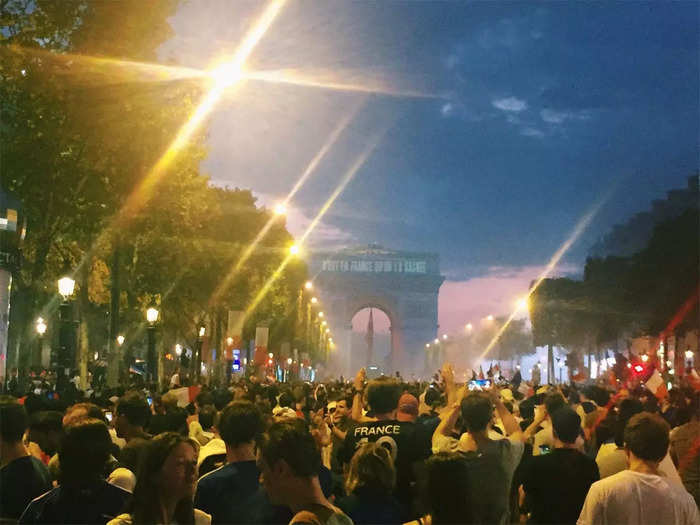
Protests are common in Paris, so tourists should be aware of the political climate and local news ahead of their trip.
Law enforcement officials regularly close down subway stations along protest routes and block off streets to contain crowds.
Tourists may want to avoid visiting areas where demonstrations are happening because the protests can sometimes escalate and become violent.
If you do run into one you weren't expecting, I advise turning around, finding the nearest subway station, and leaving the area instead of following the flow of people.
Many tourists don't know that the Seine is one of the city's most vibrant gathering spots in the summer.
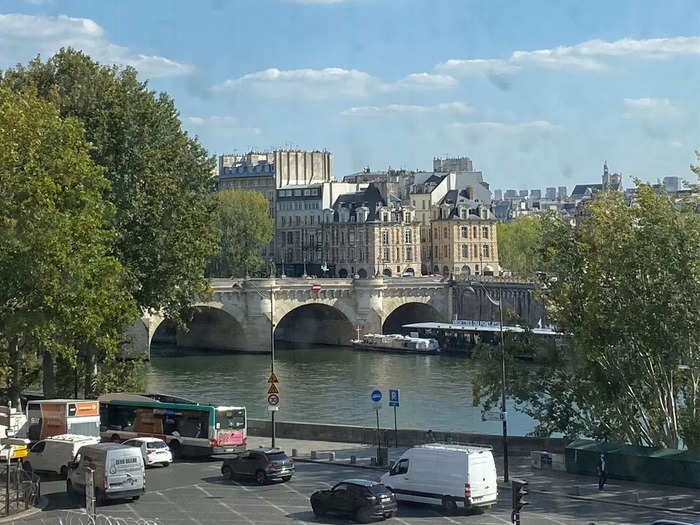
If you want to party and meet locals during the summer, the Seine is the place to go.
As soon as the weather gets warmer, Parisians flock to the riverbank to meet friends, listen to music, and enjoy food and drinks. Some areas get so crowded that you have to search for a place to sit.
At a promenade along the water called the Quai Saint Bernard, people gather to practice tango, salsa, and other types of dancing. The atmosphere is laid back and welcoming, so if you go, you'll most likely end the night with some new local friends.
Give yourself enough time to stroll through the parks before they close.
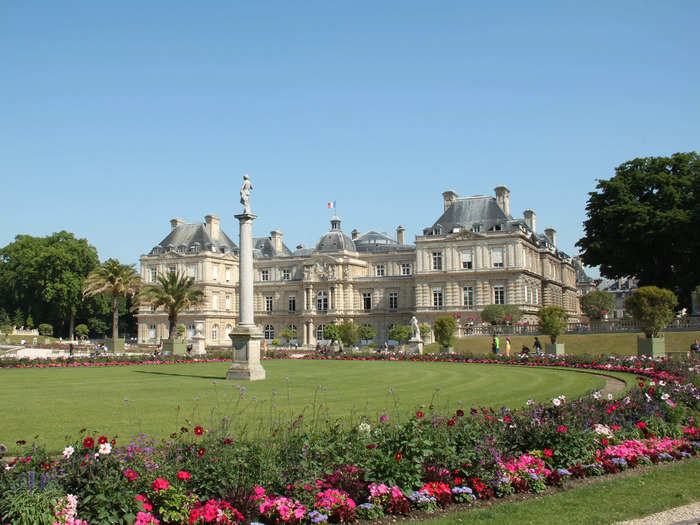
Paris is home to some of the world's most scenic public parks, but most tourists don't realize that a lot of them close before the sun sets.
Arrive in the morning or early afternoon to ensure that you have plenty of time to enjoy the grounds.
If you want to admire classic French architecture, head to the Luxembourg Gardens and lounge on the grass or by the fountain. You can also visit the Palais-Royal garden after exploring the Louvre, which is just steps away.
Popular Right Now
Popular Keywords
Advertisement